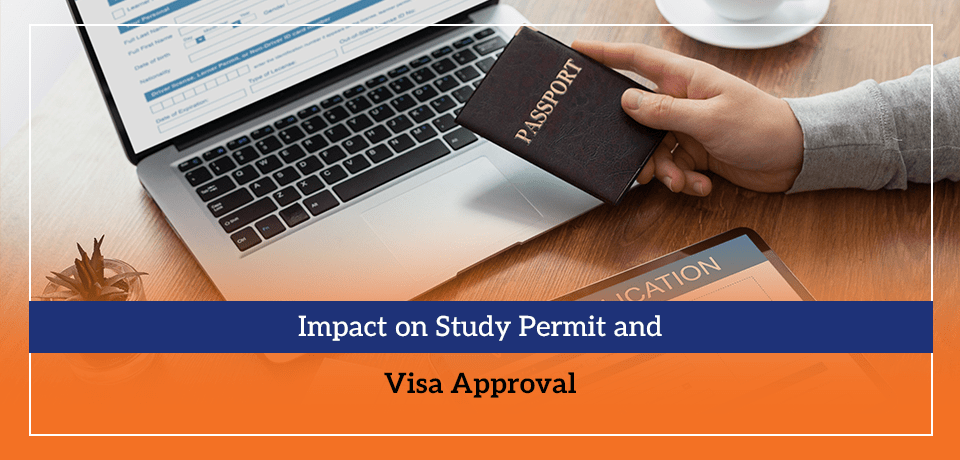Did you know that many international students in Canada are accepted even with a study gap? This suggests that taking some time off from your studies before applying is not necessarily a problem.
So, how much gap is accepted for study in Canada? If you have the same question, you're not alone. Many even worry that study gaps might hurt their admission chances and visa approval.
A study gap doesn't have to be a barrier to your Canadian education dreams. With the right documentation, your study break can strengthen your application. It can also showcase your readiness for further academic success.
We've created this comprehensive guide to help you understand the Canada study gap policy. You'll learn about acceptable gap lengths, ways to explain your study break, and more.
Understanding Study Gaps
A study gap is when you are not enrolled in a full-time academic program. For example, if you finished high school and didn’t start college for two years, that time is your study gap.
Common Reasons for Study Gaps
Students take breaks from education for various legitimate reasons:
- Employment or internship opportunities
- Personal or family responsibilities
- Travel or cultural exploration experiences
- Health concerns requiring time off
- Pursuing short-term courses or certifications
Why Canadian Institutions Evaluate Study Gaps
Canadian universities and immigration officials carefully review study gaps. They want to see if you are ready for academic success. They review your gap to understand your learning or personal growth during that time. A well-explained gap, accompanied by proper documentation, can strengthen your application.
They mostly want to know:
- Were you engaged in productive activities during your time away?
- Did you maintain or enhance your academic readiness?
- Can you provide proof of academic continuity or explain your circumstances clearly?

Overview of Gap Acceptability in Canada
Different programs have different expectations regarding the maximum gap accepted in Canada:
|
Program Level
|
Acceptable Gap
|
Special Considerations
|
Documentation Needs
|
|
Undergraduate
|
1-2 years
|
✓ Generally accepted without concerns
|
Basic explanation and proof of activities.
|
|
Postgraduate
|
2-5 years
|
✓ Acceptable with relevant work experience
|
Detailed work documentation and relevance to the program.
|
|
Any Level
|
Longer gaps
|
✗ Requires thorough justification
|
Comprehensive evidence of continuous learning.
|
Variation by Program and Institution
Policies on study gaps differ across institutions:
- Many colleges are flexible and accept longer gaps, especially with work experience
- Universities, particularly professional programs (medicine, law, engineering), tend to be stricter and may require recent academic history
- Some colleges and universities in Canada offer bridging courses for students with longer gaps
- Technical and applied programs may focus on evidence of skill maintenance during breaks
Exceptions to the Rule
Longer gaps can be acceptable with proper justification for study gap:
- Medical emergencies (with supporting documentation)
- Family responsibilities (with reference letters)
- Professional development with career progression
- Continuous learning through formal or informal education
- Entrepreneurial ventures or self-employment
Is a 2-Year or 5-Year Gap Accepted in Canada?
Canadian institutions are flexible when it comes to study gaps. Even if you have a 2-year or 5-year gap, you can still be accepted. What matters is how you used that time. If you stay busy with learning or working, it can work in your favour.
Short Gaps (1-2 Years)
A 1-2 year break is generally acceptable for most Canadian institutions. Have you used this time to:
- Gain entry-level work experience
- Complete internships or volunteer work
- Take preparatory courses for your intended field
Most admissions committees view these productive short gaps positively.
Longer Gaps (3+ Years)
The acceptance of a long study gap (3-5 years or more) depends on:
- The relevance of your activities to your chosen program
- Evidence of continuous learning or professional growth
- Clear documentation of your trajectory
- A compelling reason for returning to education now
Program-Level Differences
Different programs assess backlogs and study gaps differently:
- Undergraduate programs often prefer recent academic credentials
- Graduate programs may value substantial work experience
- Professional programs (medicine, law, engineering) may have stricter policies
- Certificate programs are often more flexible with longer gaps
|
Program Type
|
Short Gap (1-2 years)
|
Medium Gap (3-5 years)
|
Long Gap (5+ years)
|
|
Undergraduate
|
Highly acceptable
|
Requires explanation
|
Challenging but possible
|
|
Master's Programs
|
Acceptable
|
Often favourable with relevant work
|
Acceptable with strong justification
|
|
Technical Diplomas
|
Acceptable
|
Acceptable with skill maintenance
|
Requires bridging courses
|
|
Professional Programs
|
Varies by field
|
May require updating prerequisites
|
May suggest preparatory courses
|

Impact on Study Permit and Visa Approval
A study gap might influence your study permit and visa approval as well. IRCC assesses whether you stayed engaged through work, courses, or skill development.
Role of Immigration Authorities (IRCC)
The IRCC study gap rules are an important consideration. IRCC reviews your gap when processing visa applications, focusing on:
- Evidence of productive activity during your gap
- Logical progression in your educational and career path
- Likelihood of successful completion of your program
- Genuine intent to study in Canada
Documenting the Gap
Your documentation is critical for the study gap documentation requirements. Typically, they are:
- Employment letters showing positions and dates
- Pay stubs or tax documents as proof of employment
- Certificates from courses completed during the gap
- Medical documentation (if applicable)
- Reference letters verifying volunteer work
- A detailed academic gap explanation letter
Green Flags vs. Red Flags
Green Flags (Positive Indicators)
|
Red Flags (Warning Signs)
|
|
✓ Continuous employment with progressive responsibility
|
✗ Unexplained periods within your gap
|
|
✓ Relevant certifications during your gap period
|
✗ Frequent job changes without clear progression
|
|
✓ Complete documentation for the entire gap duration
|
✗ Lack of documentation for claimed activities
|
|
✓ Clear connection between gap activities and study plans
|
✗ Inconsistencies in your timeline or explanation
|

How to Justify Your Study Gap
As we said, justifying your study gap is important for a strong application. Your SOP and statements of purpose do this for you. A well-written statement can show your commitment to learning and readiness to continue
Your SOP for gap explanation should:
- Acknowledge your gap period honestly
- Clearly explain the reasons for your break
- Highlight productive activities during this time
- Connect your experiences to your academic goals
- Demonstrate readiness to return to education
Including Work/Internship Documents
Strengthen your application with employment evidence:
- Official employment letters on company letterhead
- Performance evaluations showing achievements
- Project documentation demonstrating skills
- Recommendation letters from supervisors
Highlighting Skills Acquired
Emphasise both technical and soft skills gained during your gap:
- Industry-specific technical knowledge
- Software or equipment proficiency
- Communication and leadership abilities
- Problem-solving and critical thinking skills
- Project management experience
Addressing Personal/Family Reasons
If your gap resulted from personal circumstances:
- Be honest about the situation without oversharing
- Focus on how you managed challenges
- Highlight personal growth and resilience
- Show how these experiences prepared you for success
Strategies to Make Your Application Stand Out
Show how your gap activities complement your chosen field:
- Highlight relevant projects or responsibilities
- Explain how work experience informed your academic goals
- Demonstrate knowledge of the industry or field
- Show how your unique perspective will enhance classroom discussions
Leveraging Professional Experience
Work experience after graduation gap can be a significant advantage:
- Quantify achievements (increased sales by 20%, managed a team of 5)
- Highlight industry-specific knowledge
- Demonstrate progressive responsibility
- Include recommendation letters from professional contacts
Additional Certifications
Strengthen your application with continuing education:
- Online courses from recognised platforms
- Industry workshops and conferences
- Professional certifications and licenses
- Language proficiency exams (IELTS, TOEFL)
Formatting Your Documents for Clarity
Create clear, professional documentation:
- Use consistent formatting across all documents
- Include clear timelines and dates
- Organize information logically
- Proofread carefully for errors and inconsistencies
Useful Tips for Mature Students
Mature students bring valuable experience to their studies. If you're applying with a study gap, focus on how your skills and knowledge make you a strong candidate. Here’s what you can do:
Emphasize Employability
As a mature student visa in Canada applicant:
- Highlight transferable skills from your career
- Demonstrate how your experience enhances your academic potential
- Show awareness of current industry trends
- Explain how the combination of your experience and education will advance your career
Letters of Recommendation
Secure strong endorsements:
- Professional references from supervisors or colleagues
- Academic references, if possible, even from previous education
- Character references addressing your study readiness
- Industry experts who can speak to your knowledge and potential
Scholarships and Financial Support
Many opportunities exist specifically for non-traditional students:
- Scholarships for professionals returning to education
- Employer tuition assistance programs
- Government programs for career transition
- Industry-specific grants and scholarships
Comprehensive Application Guide
|
Personalised Gap Assessment Checklist
|
|
Gap Duration
|
Required Documentation
|
Special Considerations
|
Level of Explanation
|
|
1-2 years
|
Basic employment records, a brief explanation letter
|
Generally straightforward
|
Low to moderate detail
|
|
3-5 years
|
Detailed work history, recommendations, and a gap explanation letter
|
Focus on skill maintenance
|
Moderate to high detail
|
|
5+ years
|
Comprehensive career documentation, personal statement, and academic readiness evidence
|
Consider bridging courses
|
Very detailed explanation
|
Document Organisation Template
Create a clear timeline of your gap activities:
|
Time Period
|
Activity
|
Documentation
|
Skills Gained
|
Relevance to Program
|
|
Jan-Jun 2023
|
Marketing Intern
|
Certificate, Letter
|
Digital marketing, Data analysis
|
Directly relevant to the Business program
|
|
Jul-Dec 2023
|
Online Courses
|
Certificates
|
Programming, Project management
|
Demonstrates continuous learning
|
|
Jan-Jun 2024
|
Family Care
|
Reference Letter
|
Time management, Resilience
|
Shows character and responsibility
|

Frequently Asked Questions
Is it still possible to get a Canada study visa with a long gap?
Yes, a long gap does not mean rejection. Canada immigration gap acceptance depends on how well you document. You need to show that you were learning or working during this time. A strong explanation with proof helps your chances.
Do Canadian colleges accept a 2-year break after high school?
Yes, most colleges in Canada accept a 2-year gap after high school. They see it as a time to learn new skills or gain experience. If you did productive activities, it will support your application.
What documents help justify a study gap?
Important documents include job letters, course certificates, and volunteer proof. Medical records may help if health was a reason. A clear gap explanation letter is also important.
Can part-time courses or online certifications fill a study gap?
Yes, they can. Taking courses shows you are still learning. Online or part-time studies prove your interest in education. This makes your gap more acceptable.
Will my study gap affect job prospects in Canada post-graduation?
Not really. If you use your gap time wisely, employers will value your skills and experience. If your gap helped you grow, it won’t hurt your job chances.
Is a 3-year gap accepted in Canada?
Yes, a 3-year gap is usually fine for postgraduate programs. If you worked or studied during this time, your chances improve. Keep documents to prove your activities.
Is a 7-year gap accepted in Canada?
Yes, but you need strong evidence to justify the gap. Work experience or additional studies can be beneficial. A well-written explanation is important for approval.
Which colleges in Canada accept study gaps?
Many colleges in Canada accept study gaps. Some flexible ones are Centennial College, Humber College, and Algonquin College. These schools offer professional programs that accept students with gaps.
Is a 10-year study gap acceptable in Canada?
It is possible in rare cases, but you’ll need very strong proof, such as documented career progression, advanced certifications, or continuous professional development. Many institutions may recommend bridging or preparatory courses before admission. Visa officers will expect a very clear explanation of why you’re returning to studies after such a long time.
Can international students take a gap year before studying in Canada?
Yes, Canadian universities and colleges accept international students with gap years. Many universities and colleges in Canada are open to international students who have taken a gap year.
How long of a gap is generally accepted by Canadian universities/colleges?
It depends on the admission policies of the universities or colleges. Some have stringent gap year policies, while others are flexible. However, students with a 2-year gap in undergraduate studies and a 5-year gap in postgraduate studies are generally accepted.
Will taking a gap year affect my chances of getting a study permit?
Taking a gap year usually won't affect your chances of getting a study permit in Canada. But you may have to explain why you took a gap year in your admission application.
How Much Gap Is Acceptable for Study in Canada After 12th?
A study gap of up to 2-3 years after 12th grade is generally acceptable for undergraduate programs.
How to Cover Gap for Study Visa in Canada?
To cover a gap for a study visa in Canada, provide valid reasons such as work experience, internships, skill development courses, or personal circumstances. For colleges and universities, include documentation and a clear explanation in your Statement of Purpose to demonstrate continuous learning or relevant activities during the gap period.
Can I work or earn money during my gap year in Canada?
If you take a gap year before studying in Canada, you can usually work in your home country or elsewhere where you have legal work rights. In Canada, you can only work if you already hold a valid study permit or work permit. Once admitted to a Canadian institution, most students are allowed to work part-time during studies and full-time during scheduled breaks.
Is a 4-year gap accepted in Canada after 12th?
Generally, Canadian institutions accept up to a 2-year study gap for undergraduate programs. A 4-year gap may require a strong justification and supporting documents to be considered.
Is a 15-year study gap acceptable in Canada?
A 15-year study gap is highly uncommon and usually challenging. Only a few programs may consider applicants with such long breaks, and only if supported by exceptional justification, extensive work history, or professional achievements. Strong documentation and a compelling Statement of Purpose (SOP) are essential, and bridging courses may be required.
How many years of study gap are accepted in Canada for a master's?
For master's programs, Canadian universities generally accept up to a 5-year study gap, provided there are valid reasons supported by documentation.
Conclusion
Knowing how much gap is accepted for study in Canada is important for international students. Canada's study gap policy generally allows 1-2 years for undergraduate courses. For postgraduate programs, 2-5 years is usually accepted. Longer gaps can also be effective if you provide strong evidence and a clear justification.
The key is to show that your gap was useful. If you learned new skills, worked, or gained experience, it can help your application. Proper documentation and a clear explanation will make a significant difference.
Canadian universities know that not everyone follows a straight path in education. If you prepare well and explain your gap effectively, it can even strengthen your application. Your experience can demonstrate growth, real-world skills, and a clear goal for your studies.